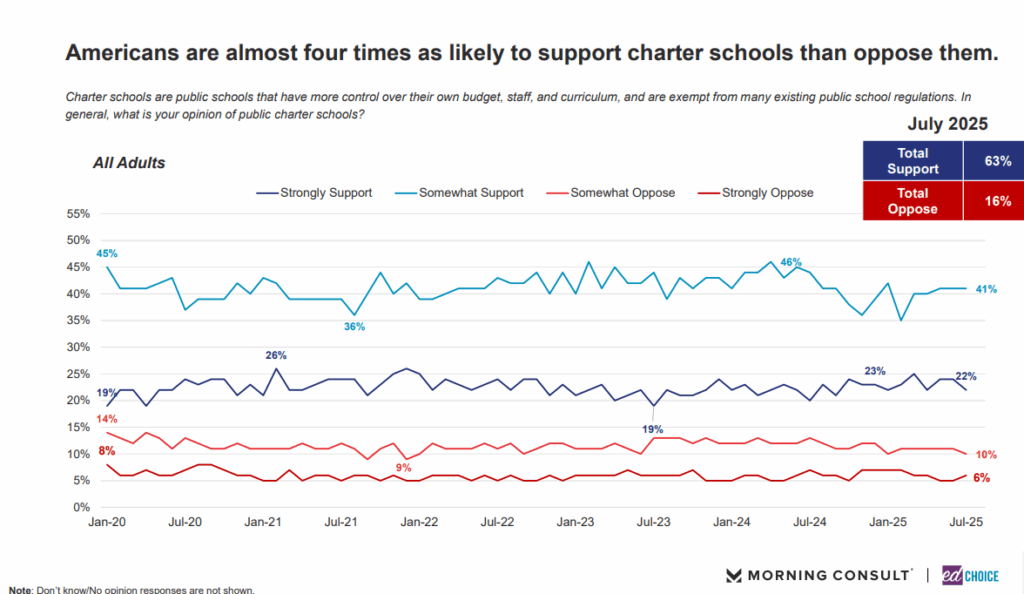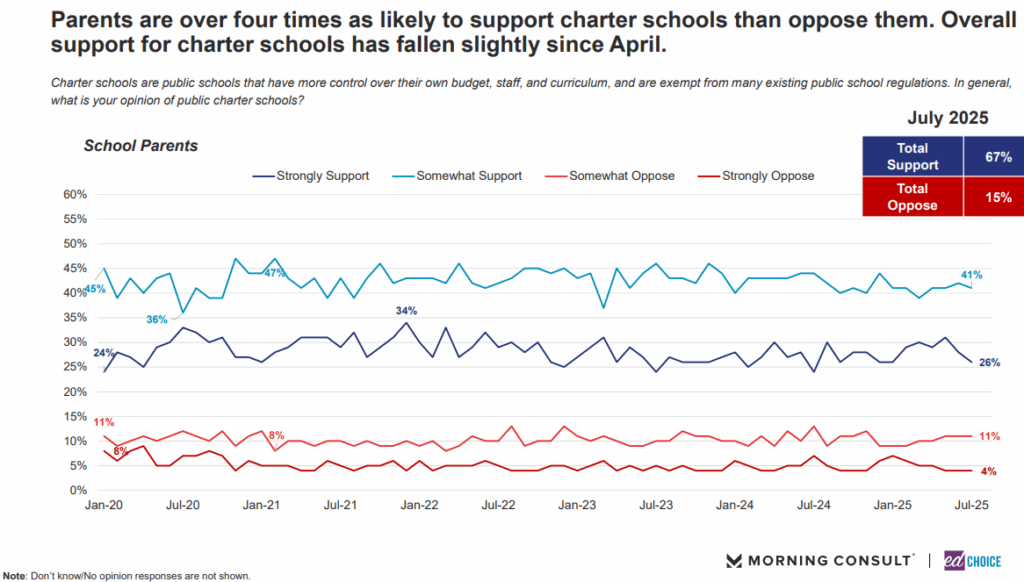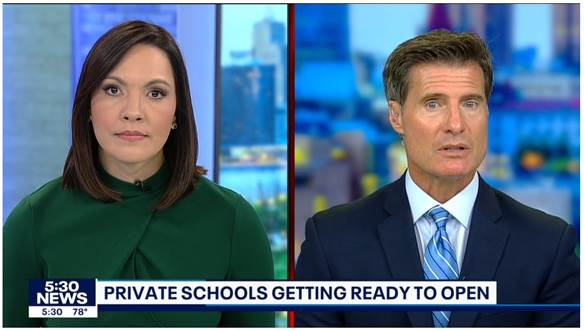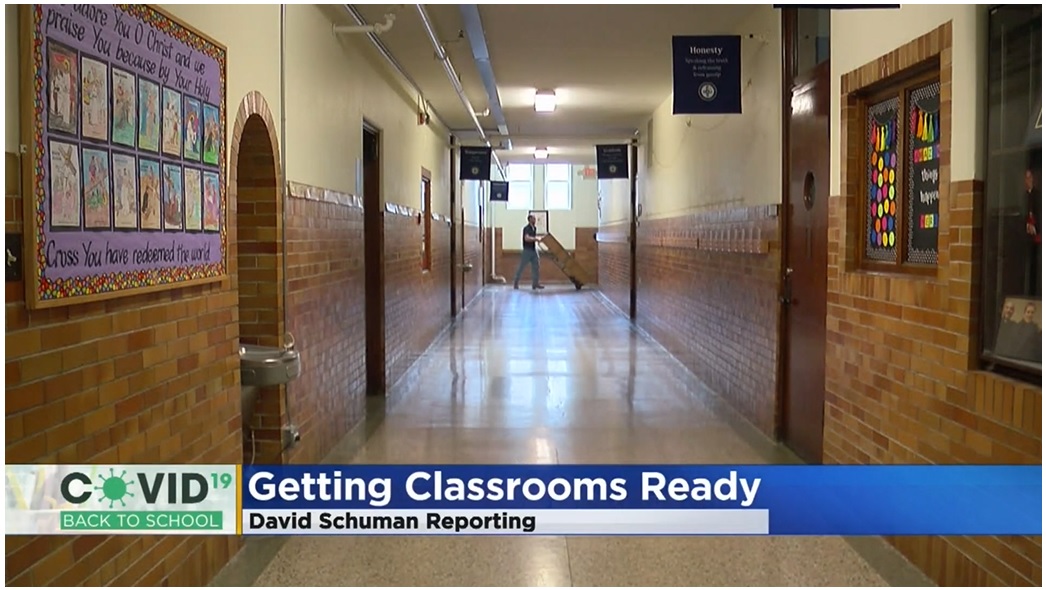Support for charter schools remains high among the majority of all American adults at 63 percent.
A recent national July poll conducted by Morning Consult on behalf of EdChoice asked respondents their opinion of charter schools. The poll gave respondents this definition of charter schools, followed by this question: “Charter schools are public schools that have more control over their own budget, staff, and curriculum, and are exempt from many existing public school regulations. In general, what is your opinion of public charter schools?”

When school parents in particular are surveyed — who are more engaged in school systems than average Americans — support for charter schools rises even higher, to 67 percent. Overall support for charter schools among parents has risen 2 percent since 2020.

Minnesota led the charge nationally on charter school innovation, becoming in 1994 the first state to legalize charter schools. Charter schools are publicly funded independent schools who operate under private administrators. They do not charge tuition and are open to all students. Through their freedom from the traditional public school structure, they can specialize content and instruction to maximize individual student engagement and achievement. Charter schools are designed to be places of educational experimentation that provide high-quality educational care for free.
As Minnesota’s groundbreaking charter schools continue to operate, there will always be room for improvement. Potential future areas of scrutiny include reforming Minnesota’s charter school authorizer system, perhaps by requiring all potential charter authorizers to prove a high standardized level of fiscal responsibility before granting schools a charter.
When my colleague Catrin Wigfall compared public school performance to charter school performance by demographic, she found that many Minnesota charter schools perform better than their public school alternatives.











![[downloaded during free trial]](https://oakmn.org/wp-content/uploads/2025/11/iStock-1430368205-120x86.jpg)

